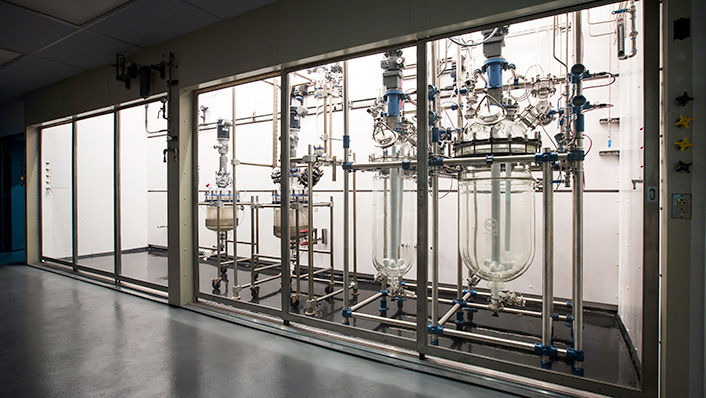Small scale, big impact: The advantages of flexible pilot plant equipment
Having on-site access to a fine chemical pilot plant offers seamless tech transfer and manufacturing flexibility for API development, from process scale-up to small-volume production

In the world of fine chemical development and manufacturing, scale matters, so having access to pilot plant resources is valuable. Having them on-site where you develop your molecules is indispensable. In fine chemical manufacturing, pilot plants occupy the critical space between the lab and large-scale commercial production. Essentially a small manufacturing unit, the goal of a pilot plant is to mimic, as closely as possible, how a process will run at full commercial scale. It enables you to undergo critical risk mitigation before moving to a commercial facility.
Why work with a company that has a pilot plant?
One of the biggest advantages to using a pilot plant is being able to gradually scale up the work, while also assessing—and mitigating—risk at every step along the way. In the pilot plant, you can observe and understand how mass transfer, heat transfer and isolations impact the chemistry of your molecule in smaller batches before moving to a commercial facility.
Some sites—like Grace’s newly expanded South Haven, Michigan fine chemicals facility—contain both small- and large-scale capabilities under the same roof, enabling you to seamlessly transfer technology and processes.
The advantage is not just having the equipment in the same location, but also having the same employees work to scale the processes from the lab to the kilo lab to the pilot plant. Those employees are critical for helping to bridge the gap and reduce risks associated with technology or knowledge transfer. It also saves time and resources, which can help you meet an accelerated timeline and move into larger production volumes to support Phases 2 and 3 of clinical programs without the delay caused by transferring projects to a new facility for each phase.
The cGMP pilot plant at Grace is designed to mirror the layout, workflow, equipment, and control instrumentation of the company’s commercial process equipment, and contains reactors with volumes from 30 to 500 gallons. With smaller versions of the same equipment -- such as glass-lined, stainless steel and Hastelloy alloy reactors -- you can trial complex chemistries and reactions and have confidence that the outcomes will successfully translate to the commercial scale.
Tipping the scales with a pilot plant
More than just an intermediate step in process development scale-up, pilot plants deliver flexibility throughout the fine chemicals process. For example, they can produce trial batches of a commercial product and even support small-volume manufacturing. Because the pilot plant scale is similar to production equipment, it can be used to create registration batches in preparation for validation batches at larger scale. And finally, when output volumes are unpredictable, a pilot plant allows you to stay in the same equipment train and easily scale volume up or down depending on the outcome of the trial.
For pharmaceutical companies looking to make a big impact on a small scale, consider an on-site pilot plant for your next project. Contact Grace’s Fine Chemical Manufacturing Services (FCMS) team to get started.